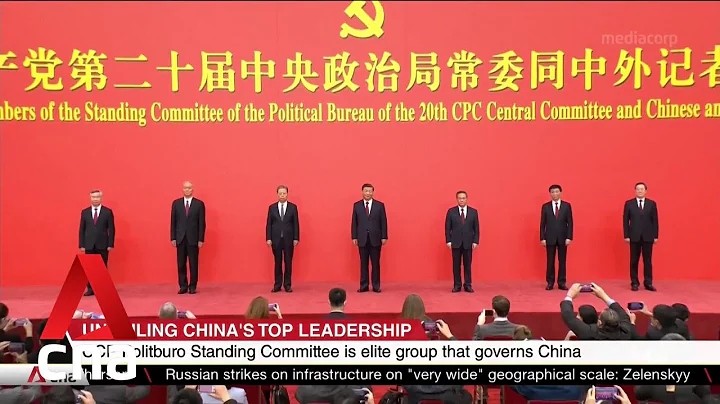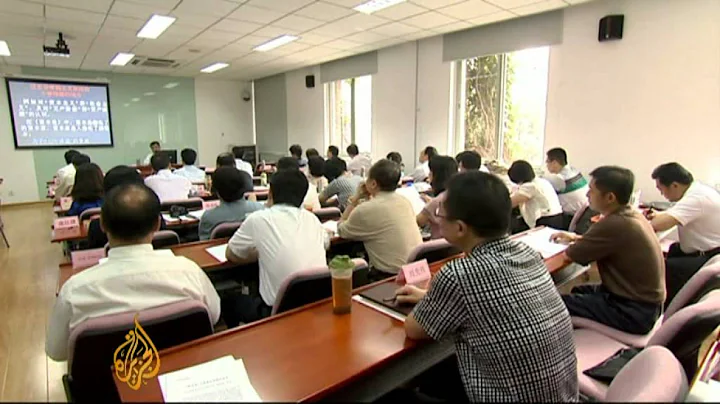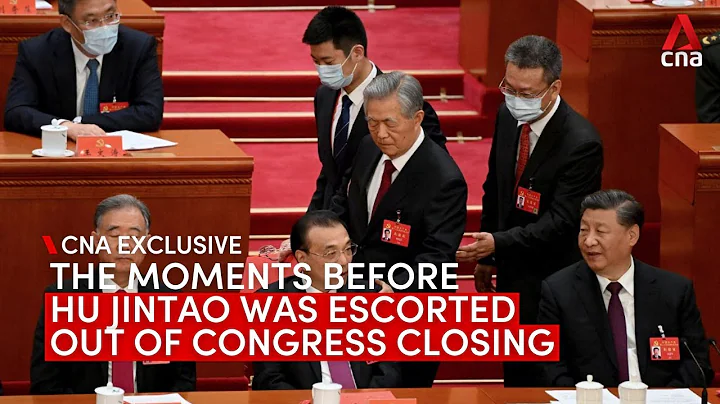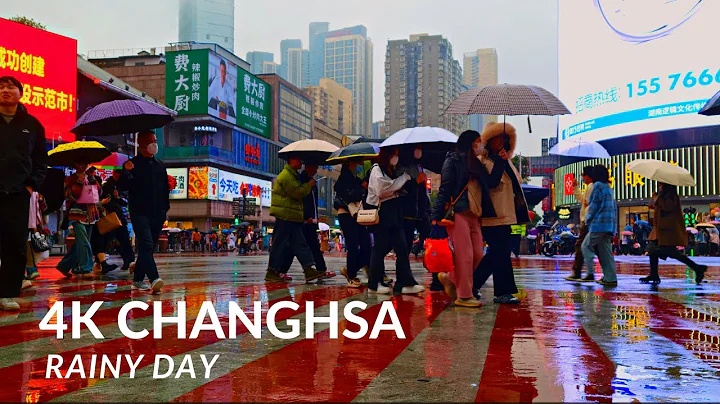Text\Picture Hainan Daily Reporter Qiu Jianghua
Walking into the former site of the CCP Qiongya University on Jiefang West Road, Haikou City, it is easy to be drawn back to a long time ago. This is the birthplace of the Qiongya local organization of the Communist Party of China, and the source of the Qiongya armed revolutionary struggle that has kept the red flag for twenty-three years.
During the past twenty-three years, batch after batch of Communist Party members, under the strong leadership of the party organization, united and led the people to carry out arduous struggles, and finally won the victory of the Qiongya Revolution. To this day, through the red cultural relics placed in the display cabinets, we can still feel their revolutionary spirit of not being afraid of hardships, daring to fight, and being selfless.
Handkerchief with embroidered words shows sincerity
A white handkerchief is neatly stacked in a glass display case at the former site of Qiongya CCP, with the four words "Don't forget May 30" embroidered in red thread on it. At first glance, this handkerchief looks ordinary, but in fact, it is a relic of martyr Chen Dehua, a member of the Qiongya Prefectural Committee of the Communist Party of China.

The handkerchief left by Chen Dehua has the four words "Don't forget May 30" embroidered on it.
The hour hand goes back to after the May 4th Movement. With the awakening of the youth in Qiongya, a group of young students from Qiongya went out to study on the island one after another. Chen Dehua, a native of Qiongshan (now part of Haikou City), was one of them. In July 1922, at the age of 22, he went to Shanghai and entered Hujiang University to study.
In Shanghai, Chen Dehua not only joined the Communist Party of China, but also actively participated in various social movements. He participated in the Shanghai student movement and labor movement, and participated in organizing the Shanghai Student Federation, becoming the backbone of the student movement and labor movement.
After the May 30th Movement broke out in May 1925, Chen Dehua and others participated in and led the Shanghai May 30th Workers' Strike. On the afternoon of May 30, more than 10,000 people gathered at the gate of the Laozha patrol house on Nanjing Road in the British Concession, chanting slogans such as "Down with imperialism" and demanding the release of the arrested students. Unexpectedly, the British patrol opened fire, killing 13 people on the spot, seriously injuring dozens more, and arresting more than 150 people, creating the May 30th tragedy that shocked both China and the world.
The May 30th Massacre deeply hurt many young people who had illusions about imperialism. It also hurt Chen Dehua, who was dedicated to learning English and eager to communicate with people from all over the world. He did not expect that the British, who talked so much about "science", "democracy", "freedom" and "fraternity", would actually shoot at the unarmed Chinese. The hypocrisy of imperialism is sobering.
Therefore, after the May 30th tragedy, Chen Dehua used red thread to embroider the four words "Don't forget May 30th" on the handkerchief he often used to remind himself not to Don't forget the tragedy and to work hard to overthrow imperialism and realize China's independence.
"Comrade Chen Dehua often took out this handkerchief and watched silently." According to Chen Dehua's classmate Li Qiang (minister of foreign trade after the founding of New China) recalled. At the end of 1925, according to the instructions of the party organization, Chen Dehua went from Shanghai to Guangdong to work. At the beginning of the next year, he returned to Qiongya with Wang Wenming and others to carry out revolutionary activities.
Today, the handkerchief left by Chen Dehua is not only a precious revolutionary cultural relic, but also the best proof of the sincerity of the Qiongya revolutionaries. Against the backdrop of white fabric, the four words "Never Don't forget Five Thirty" are bright red and eye-catching, as if telling future generations a history that cannot be forgotten.
A letter from home reflects the original intention and mission
"'Strive for the realization of doctrine and sacrifice for the interests of the people.' Since I determined to revolution and participated in practical work, these two sentences have become an oath... I am for the majority. People sacrifice themselves for profit, and my revolutionary goal is achieved.”
At the former site of the Qiongya University of the Communist Party of China, a reporter from Hainan Daily saw a letter from the family of Qiongya revolutionary martyr Wang Qimin. This was a suicide note written by Wang Qimin to his wife Gao Huigen in prison before he died heroically. It was also his last farewell to the world on his deathbed.

A suicide note written by Wang Qimin to his wife in prison (copy).
In 1892, Wang Qimin was born into a peasant family in Meiguo Village, Tayang Town, Huitong County, Hainan (now Qionghai City). As a boy, he was diligent in his studies and followed overseas Chinese to Singapore to make a living. After returning to China, he actively promoted the development of education and culture in Hainan and devoted himself to patriotism and anti-imperialist and anti-feudal activities.
In the summer of 1920, Wang Qimin discussed with Xu Chengzhang, who had just returned to Qiong after graduating from Yunnan Lecture Hall , hoping to establish a newspaper in Haikou to promote new ideas such as Marxism. After many efforts, "Qiongya Xunbao" was finally published in Haikou on April 7, 1921.
"Qiongya Xunbao" aims at transforming Qiongya, advocates democracy and science, and publicizes patriotism and anti-imperialist and anti-feudal ideas. At that time, Wang Qimin was not only the editor of the newspaper, but also responsible for miscellaneous tasks. He and Xu Chengzhang organized the "Qiongya Native Opera Reform Society", with Wang Qimin as editor, and invited famous actress Wu Fafeng to write, and wrote scripts such as "The Righteous Destruction of Relatives", "Extermination of Marriage", "Freedom of Love" and "Cai E's Departure from Beijing" to promote The awakening of the Qiongya people. In 1922, Wang Qimin joined the Communist Party of China.
In 1927, after Chiang Kai-shek launched the "April 12" counter-revolutionary coup in Shanghai, the Kuomintang reactionaries in Guangdong also launched the "April 15" counter-revolutionary coup, attacking the revolutionary masses of workers and peasants and arresting Communist Party members. Wang Qimin was arrested by the Kuomintang reactionaries and imprisoned in Jiangmen City Prison.
Wang Qimin fought tenaciously against the enemy in prison. In the face of the enemy's torture, he remained unyielding and denounced the reactionaries. In July of the same year, the angry Kuomintang reactionaries decided to attack him, and Wang Qimin was killed in prison.
"Strive for the realization of doctrine and sacrifice for the interests of the people." Nearly a hundred years later, when we reread Wang Qimin's family letter, we still feel that every word is burning, and we can still truly appreciate the firm political determination of a Communist Party member. Faith, lofty ideals and ambitions, and full feelings of family and country.
Personal items restore simple life
At the former site of Qiongya University of the Communist Party of China, personal items such as toothbrushes, pens, glasses and personal seals used by Feng Baiju are also stored. After leading the Qiongya Column of China to cooperate with the People's Liberation Army in crossing the sea to complete the mission of liberating Hainan Island, these personal items accompanied Feng Baiju, who invested in the construction of New China, for a long time.

Toothbrushes, pens, glasses, personal seals, etc. used by Feng Baiju.
In his youth, Feng Baiju studied at Shanghai Daxia University. What he saw and heard in Shanghai profoundly affected Feng Baiju and sowed the seeds of revolution in his heart. He established the belief that in order to liberate the working people and make the country independent and prosperous, this can only be achieved by overthrowing the old world and forming a new social system under the leadership of the Communist Party.
In July 1932, the Kuomintang Chen Hanguang Department launched an "encirclement and suppression" campaign against the Qiongya Revolutionary Base Area and the Qiongya Red Army. After the failure of the counter-"encirclement and suppression" campaign, the Qiongya Special Committee and Qiongya Soviet government agencies retreated to Mu Ruishan to continue fighting. .
Eight months after they moved to Muruishan, the Qiongya Red Army faced the difficulty of lack of food and clothing, and they once lived a "savage" life. Without food, Feng Baiju led the soldiers to dig wild vegetables to satisfy their hunger; without clothes, they used bark to make "flower clothes"; without beds and quilts, they slept on stone beds and covered with banana leaves.
Hardships cannot defeat the Communists. Feng Baiju led everyone to eat "revolutionary food" while insisting on studying and exercising. Sometimes Feng Baiju takes the lead in singing Qiong opera , and the deep forest is full of vitality. Feng Baiju also changed Bai Juyi 's poem " Fu De Gu Yuan Cao Farewell " to "Mu Rui Mountain Wild Fire": "The vast Mu Rui Mountain, the enemy is trapped, I am self-strengthened. The wild fire cannot be extinguished, and the spring breeze blows vigorously." In this way. Inspire the fighting spirit of the soldiers. In April 1933, everyone finally successfully broke through under the leadership of Feng Baiju.
Feng Baiju was frugal and did not specialize in his life, which can also be seen from his relics. "We have been liberated, but the people's lives are still not rich. We should think about the past and the life of most people is still very difficult, and we cannot talk about enjoyment too high." After the liberation of Hainan, Feng Baiju once said this.
In the early days of the construction of New China, facing the current situation of Hainan Island waiting to be developed, Feng Baiju, who entered a new role, put down his gun, picked up his pen, and devoted himself to his work. These cultural relics now stored at the former site of Qiongya No. 1 of the Communist Party of China seem to be restoring to us the working scene of Feng Baiju at that time: he may have been wearing these glasses and drafting the manuscript "Congratulations on the great victory of the liberation of the island" with a pen. Carry the seal with you to and from important meetings...





















